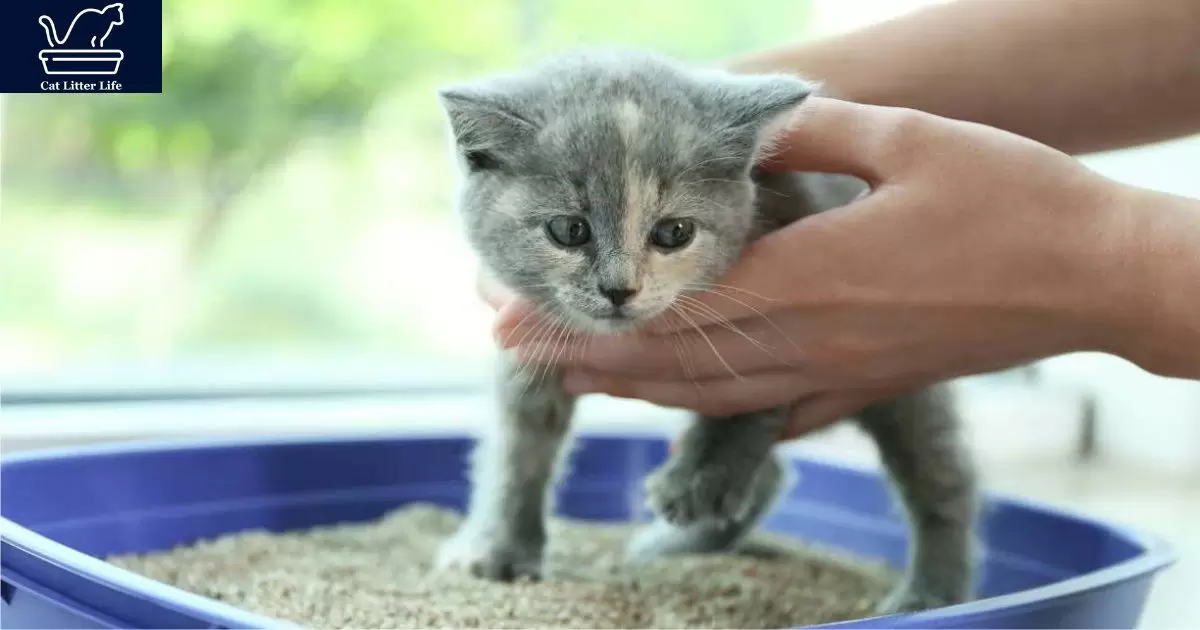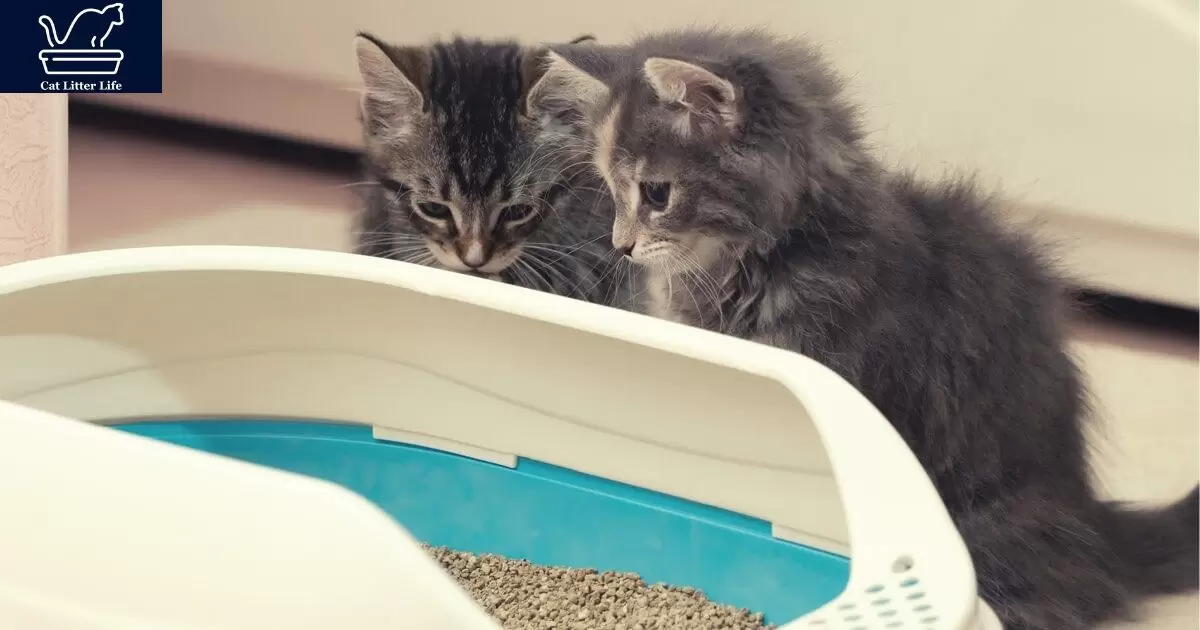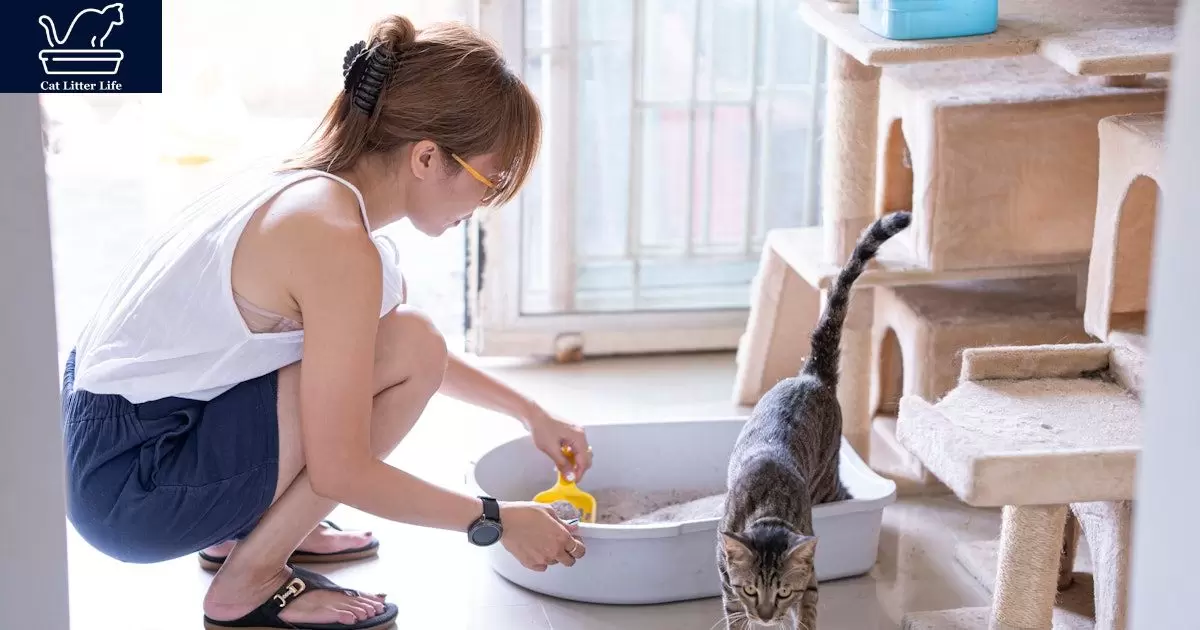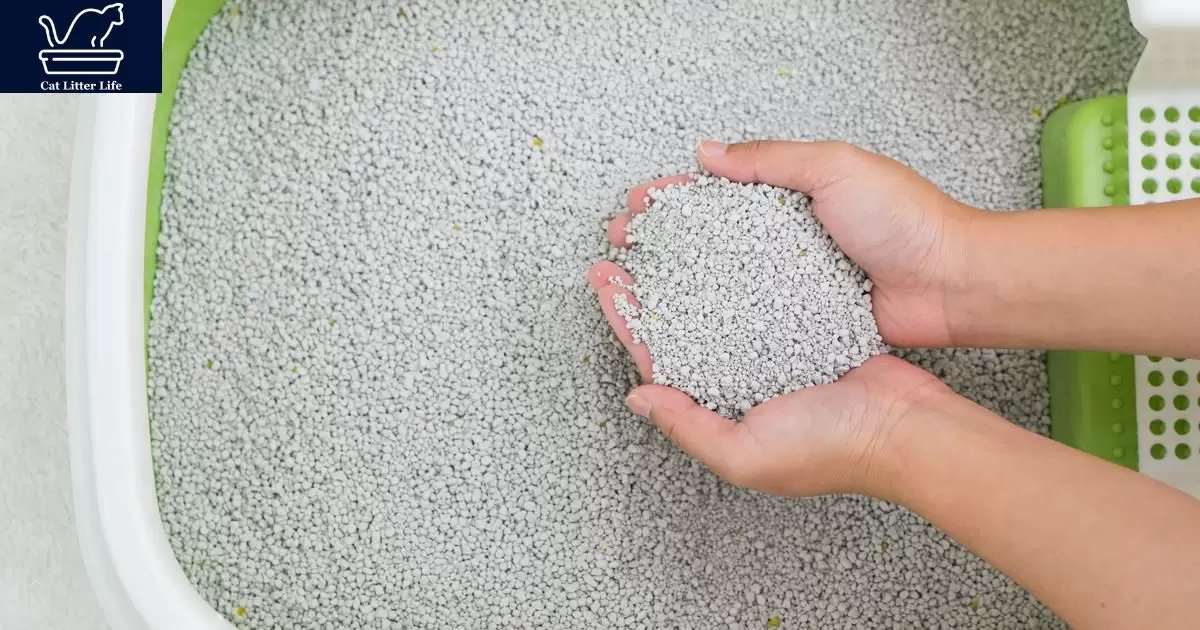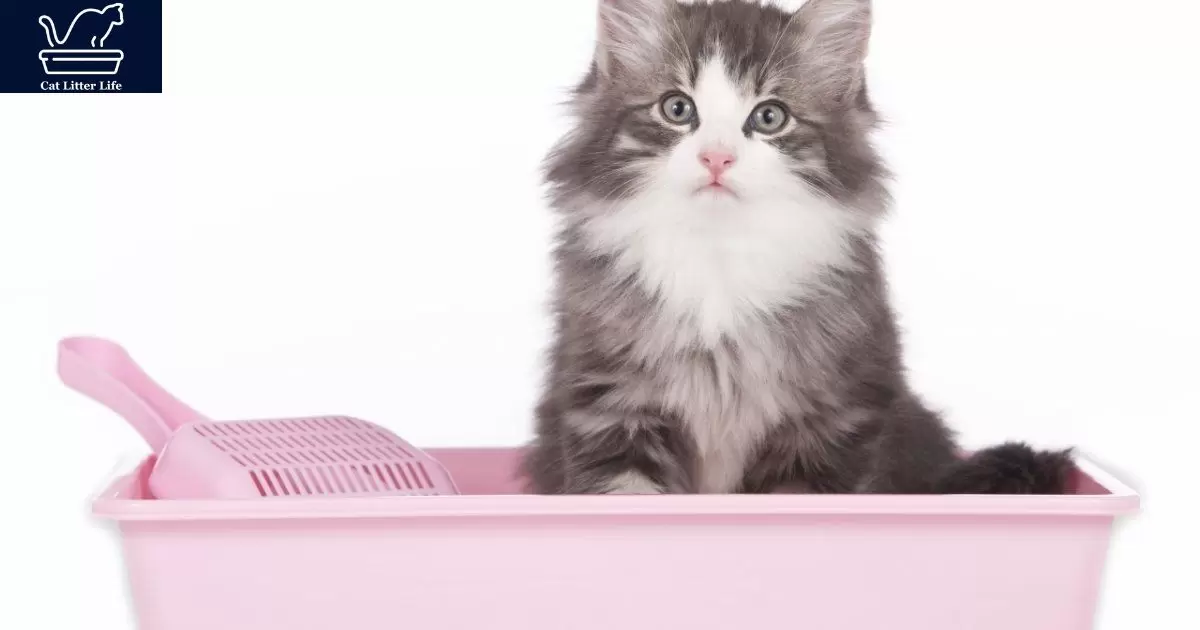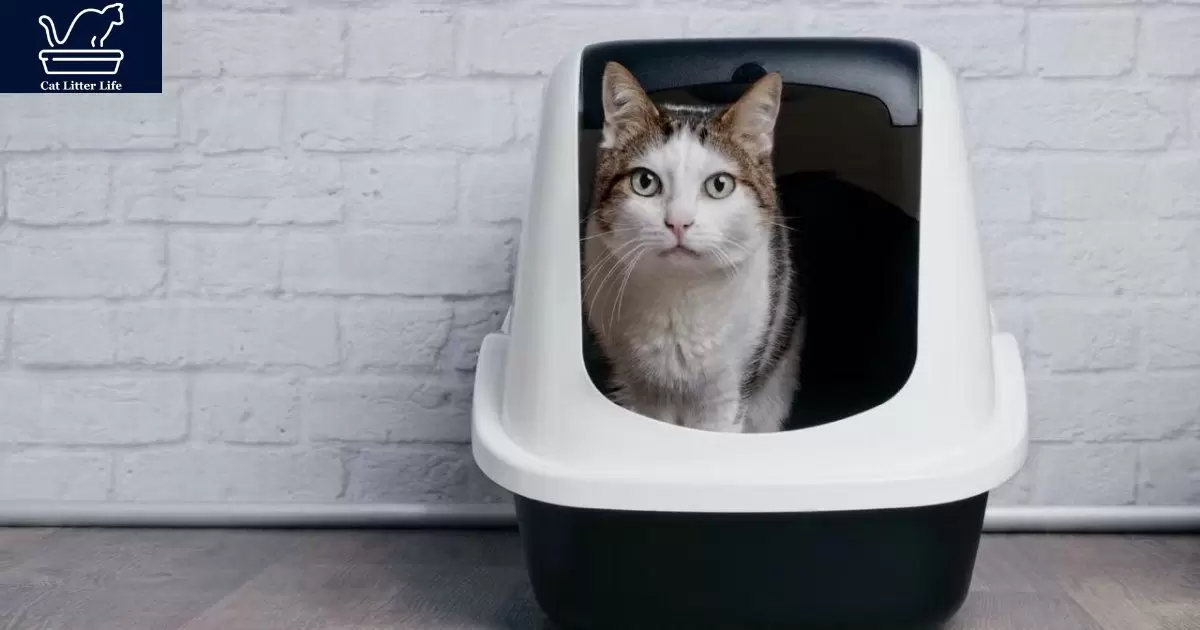Cat urine contains ammonia, causing litter containers to smell. Removing waste daily, washing muddle containers weekly, and the use of odor-controlling litter could make cat muddle cent higher. Baking soda and air fresheners also help absorb and mask odors. With some easy tips, you can keep litter boxes cleaner.
How to make cat litter smell better? Litter box odor is an inevitable part of having cats. Ammonia in the urine causes strong smells. Scooping waste daily, replacing litter regularly, and using odor control litters are effective ways to reduce unpleasant litter box odors. Simple tricks keep boxes fresher.
No one needs a stinky litter field. Fortunately, there are methods to make cat clutter cent higher. Scoop waste daily, wash the box weekly, and use odor to manipulate clutter. Baking soda also absorbs odors. Keeping your cat healthy helps too, as strong-smelling urine can stink up litter. With some minor efforts, you can keep litter box smells to a minimum.
Key Takeaways
- Scoop solid waste from litter boxes daily to remove a major source of odor.
- Change out all litter every 1-2 weeks, as even clean-looking litter retains smells over time.
- Use litters labeled as odor-eliminating or antimicrobial to help control smells between changes.
- Give litter packing containers an intensive wash month-to-month with soap and water to eliminate constructed-up urine and bacteria.
- Improve airflow around the clutter container by way of putting it in an open location and maintaining any enclosures open.
- Add baking soda or charcoal-based deodorizers to the clutter to assist take in odors.
- Address any scientific issues your cat has that may be inflicting excessively smelly urine.
- Consider placing an air purifier near the litter box to help remove ammonia fumes.
- Rotate different types of litter periodically to help refresh the box.
- Use cat-safe air fresheners and deodorizers sparingly to mask cussed lingering odors.
Why Does Cat Litter Smell So Bad?
Cat urine contains excessive amounts of ammonia, which produces an excessive, unsightly scent. As waste piles up in the litter container, the smell builds up and becomes more concentrated. Even once you smooth out the solid waste, ammonia remnants nevertheless linger inside the container and litter. This leads to the powerful, nose-twisting smell that can permeate your home.
Some additional factors can make the smell even worse:
- Bacteria and Mold Growth: Moisture within the muddle field promotes microorganisms and mildew increase, exacerbating odors.
- Improperly Cleaned Box: Not scooping waste daily allows smells to intensify. Infrequent litter changes also worsen odors.
- Poor Ventilation: Enclosed litter box areas or boxes tucked away in basements or small rooms concentrate smells.
- Diet and Health Issues: Dehydration or medical issues can make cat urine especially pungent and strong.
Controlling these factors, such as why a cat’s litter smells so bad, will help minimize stench and make the litter box more pleasant.
10 Tips to Make Litter Box Smell Better
Dealing with muddle field smell is part of being a cat proprietor. The ammonia in cat urine creates an unpleasant scent that can take over your house. While you can’t eliminate the odor, there are methods to reduce clutter field stench and keep your home fresh. Here are some easy, effective ways to keep your cat’s litter box odor under control:
1. Scoop Daily
Scooping out strong waste from the litter box each day is critical for decreasing odor. The longer urine and feces sit in the box, the greater ammonia fumes build up. By getting rid of solids speedy, you cut down on the general stench.
Ideally, scoop the box once or twice per day. Doing it after your cat goes can further help minimize odor. Investing in a scoop with an antimicrobial coating can reduce bacteria growth as well.
2. Change Litter Frequently
Ammonia odors cling to litter particles, so changing it out completely every 1-2 weeks helps freshen up the box. For multiple cats or very frequent use, doing small litter changes even more often may be needed. When replacing litter, dump out all used litter and wash the box with soap and water. This cleans any lingering smells stuck to the plastic.
3. Use Odor-Eliminating Litters
Special litters can cut down on smells in between full litter changes. Look for litters categorized as smell-doing away with, scent-controlling, or antimicrobial. Some paintings soak up odors, while others incorporate delivered fragrances to mask smells. Litters with activated carbon or Arm & Hammer baking soda help trap odors.
4. Clean the Box Regularly
Give the litter box a thorough scrub about once a month. Using soap and water or a mild bleach solution, clean all surfaces to remove hidden urine, bacteria, and ammonia buildup that causes lingering smells. Let the box dry fully before refilling with clean litter. Doing a deep clean makes a big difference in litter box freshness!
5. Add Odor-Fighting Products
Adding products designed to fight litter box odors can provide extra smell protection between litter changes:
- Baking Soda: Sprinkle a few inside the bottom of the box before including litter to take in odors. Replace weekly.
- Odor Absorbing Gel: Gel products designed for the litter box help trap smells. Look for gels with activated charcoal.
- Air Fresheners: Fresheners made mainly for clutter boxes assist in masking unpleasant smells among modifications. Avoid heavily scented air fresheners, as those may additionally deter your cat from the use of the box.
6. Improve Ventilation
Ensuring the litter box area has good airflow is important for whisking away odor-causing ammonia fumes before they concentrate. Place the box in an open area instead of a small enclosed space.
Keeping it far away from predominant foot traffic areas in your house also can save you smells from spreading throughout your home. If housing the container in a closet or enclosed place, ensure the door is kept open to allow for ventilation.
7. Keep Your Cat Healthy
Cats with urinary tract infections or other medical issues can have, especially smelly, pungent urine. Dehydration produces a stronger ammonia odor as well. Feeding your cat a balanced diet with good hydration helps produce less smelly waste.
Keeping up with vet checkups also prevents the development of health conditions leading to stinky pee. A healthy cat will have better-smelling litter box results!
8. Consider an Air Filter
For enclosed litter areas or consistent odor problems, placing an air purifier or filter near the box can help remove ammonia and other smells from the air. Look for filters with activated carbon or charcoal for optimal odor elimination.
9. Switch Litters Occasionally
Rotating to a new type of litter periodically may help reduce built-up odors. Changing textures, materials or brands can help refresh the box environment. Try different natural or clumping litters to see which controls smells best for your cat. Be sure to transition litters slowly by mixing in increasing amounts of the new litter over time.
10. Mask Remaining Smells
For any stubborn smells that linger between litter changes, use air freshening sprays or deodorizers to mask odors temporarily. Spray air fresheners or baking soda-based deodorizers around the litter box area, avoiding direct application on the litter itself.
When to Consult a Vet About Litter Box Odors
While some smelly litter scenarios are normal, extremely strong or persistent foul odors could signal an underlying medical issue for your cat. Contact your veterinarian if you notice:
- Very strong, ammonia-like urine smells
- Urine that smells unusually foul or rancid
- Eliminating outside the litter box
- Excessive drinking or urination
- Blood in the urine
- Difficult or frequent urination
- Crystals in the urine
- Straining or vocalizing when trying to urinate
These signs and symptoms should imply urinary tract contamination, bladder or kidney issues, diabetes, or other conditions requiring remedy. Treating the medical issue will help resolve the odor problem.
Pros and Cons: How To Make Cat Litter Smell Better?
| Pros | Cons |
| Removes solid waste that causes odor | Scooping daily can be time-consuming |
| Prevents urine and feces from accumulating | Replacing all litter frequently gets expensive |
| Reduces ammonia gas buildup from urine | Washing the box monthly is an added chore |
| Decreases bacteria growth that worsens smell | Some cats dislike the scent of odor-fighting litter |
| Specialized litters neutralize and absorbs smells | Odor-fighting products can be costly |
| Cleaning allows thorough odor elimination | The messy and unpleasant task |
| Promotes a healthier environment for cats | Can’t fully eliminate all litter box smells |
| Air flow removes concentrated ammonia fumes | Accidents outside the box still happen |
| Cuts down on odor permeating the home | Medical issues could cause stubborn smells |
FAQ’s
How frequently must you clean the litter container?
Scoop the clutter field every day and alternate the clutter completely every 1-2 weeks to control odors.
What litter is best for odor control?
Litters with activated charcoal, baking soda, or antimicrobial ingredients work best to control litter box odors between full changes.
How can I make my enclosed litter box smell better?
Improve airflow in an enclosed litter box by keeping the door open or installing a small vent or fan.
Can air fresheners help with litter box smell?
Yes, cat-safe air fresheners can temporarily mask litter box odors between cleanings.
Should I use bleach to ease the muddle box?
Yes, use a moderate bleach method to sanitize the litter field and dispose of microorganisms that cause odors; rinse thoroughly after cleansing.
Conclusion
Having cats means dealing with stinky litter boxes. However, there are effective ways to make cat litter smell better through regular scooping, frequent litter changes, odor-fighting products, and good litter hygiene. You can’t eliminate odors, but staying diligent with litter maintenance can greatly improve the situation. With a commitment to controlling litter box smells your home can be much more pleasant.
Though challenging, making cat litter smell better is doable. Actions like daily scooping, weekly washing, odor-reducing litter, and ventilation will significantly minimize smells. Proper litter training habits take work but pay off through a fresher home. Staying committed to better litter routines makes for happier cats and noses.
